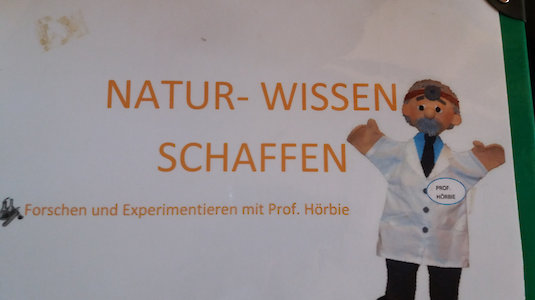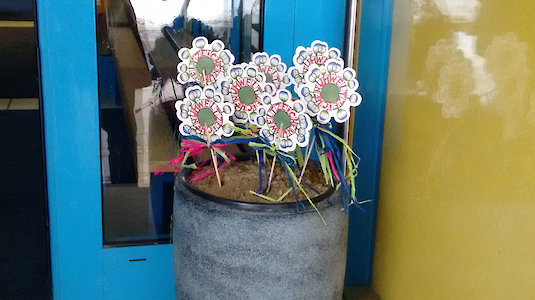Sustainable kindergartens: the Ecolabel works!
A survey on the Ecolabel guideline for kindergartens shows that the label has a favourable effect on kindergartens and their environment. The positive effects affect many areas and range from knowledge about sustainability to exciting activities on climate protection or healthy nutrition.
The Austrian Ecolabel for kindergartens
Since 2017, the credible seal of quality has also been available for kindergartens, i.e. for those elementary educational institutions where the next generation is socialised to a significant degree. It therefore makes sense to set an example of sustainable action in a playful and positive way already at this age. The aim of the guideline is therefore to promote knowledge about sustainability and to guide measures for environmental protection, educational quality and health. Accordingly, the concrete focus is on:
Environmental and climate protection: e.g. sustainable procurement, support for active mobility, waste avoidance, promotion of biodiversity.
- Health promotion: e.g. promotion of physical activity, ecological nutrition, noise reduction
- Quality of education: e.g. pedagogical impulses, further education, cooperation.
- The children and staff as well as the children's social environment and the kindergarten providers should benefit.
Impact in practice
Are these ambitious goals actually achieved through the implementation of the Austrian Ecolabel? In order to evaluate this, a survey on the impact of the Ecolabel was conducted in 2021. Ten qualitative questions and a quantitative assessment were asked. Almost two-thirds of the twelve certified kindergartens, one-third of the advisors and auditors and two supporting organisations took part. The survey revealed the following effects of certification in the Ecolabel kindergartens:
- More education on environmental and climate protection is offered - this sensitises all participants towards sustainable action.
- More regional and/or organic food is used.
- There is more cooperation and exchange with external bodies (e.g. primary schools), which promotes cooperation and togetherness.
- Through sustainable procurement and environmental management, less waste is produced.
- Paper and energy are saved.
- In some cases, there is more active movement on the way to the kindergarten, for example by walking or cycling more.

There are only winners
The children benefit from healthier food, more exercise and more varied educational offers. They also act as multipliers in their social environment and indirectly have a positive influence on parents and other family members or friends by providing food for thought and practical ideas for sustainability.
The Ecolabel gives educators ideas for new projects and deepens their knowledge about environmental and climate protection. A fresh kitchen or a healthy snack also contributes to their personal well-being. By documenting the activities and measures, it becomes visible what the staff members achieve and they receive more recognition for their pedagogical work.
The organisations save on procurement, energy and waste costs.
Examples of projects with positive effects
Ambitious Ecolabel kindergartens implement a variety of projects that have a positive impact both internally and externally. The following examples illustrate this:
- A children's conference was held, giving the children a voice.
- In a "fresh kitchen", children learn to prepare healthy meals.
- Through cooperation, external experts such as sports teachers or nutritionists support kindergartens in promoting health.
- Parents bake organic bread for the "healthy snack".
- Parents give the snacks in reusable containers.
- Educators from other cultures tell about it - also in their mother tongue.
- A play on the topic of water was developed and presented to parents and the primary school.
- Teachers are given up to ten days off for further training.
- The new construction of a kindergarten in timber construction with heat pump and photovoltaics stands for sustainable building and a future-oriented energy supply.
The positive effects of the Ecolabel on children, educators, parents and the institutions are visible and manifold - what they have in common is that they appeal to everyone involved, motivate them and contribute to changing the future for the better.
Ecolabel kindergartens are characterised by active contributions to climate protection, healthy nutrition, lots of exercise and respectful cooperation. And all this despite scarce personnel and time resources in the kindergartens! The Ecolabel itself stands for credibility, transparency and communication.
A summary of the evaluation can be found at: www.umweltzeichen.at/kindergarten/evaluation
